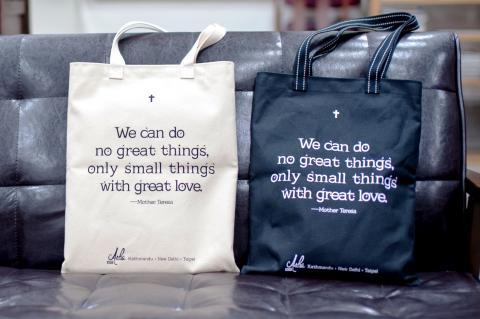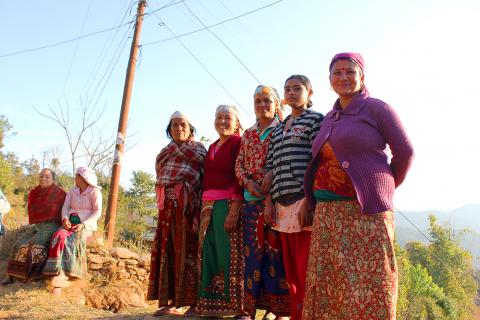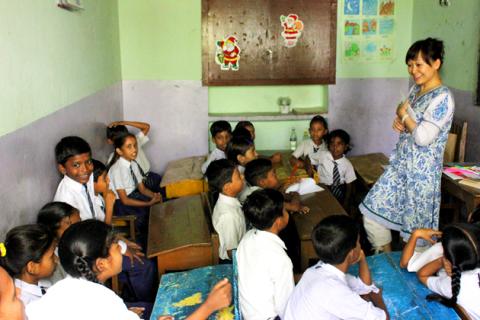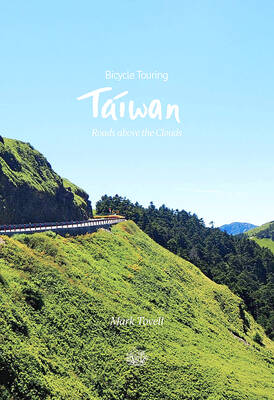In 2012, Evelyn Chen (陳怡家) fell into a deep depression when, for the second time, her marriage prospects crumbled weeks before she was to say her vows. Chen had a successful career in the corporate world, marketing consumer electronic accessories. Yet like many Taiwanese women, she defined her self-worth in romantic love, marital status and motherhood.
“As I entered my thirties, my friends began getting married and starting families. I believed I must also move in this direction,” she said.
At a low point, she half-heartedly signed on to a “service-learning” trip to India with Rock Leadership, an organization whose mission is to instill civic responsibility in the youth of Taiwan.

Photo courtesy of Asha
Chen said she was profoundly changed by the trip.
“As I was singing and dancing with the children in the slums, I was grieved by the vast wealth disparity in society. These children from the bottom of the caste system seemed to be hopelessly stuck in a perpetual cycle of poverty. I wanted them to know they are valuable. They deserve an education and basic rights,” Chen said.
She returned to Taipei with a fierce determination to change the course of her life — and the lives of families living in destitute poverty from the slums of India to the hills of Nepal.

Photo courtesy of Asha
At the start of last year, Chen founded Asha (which means “hope” in Hindi), a social enterprise that establishes brand name products. She then channels funding from sales proceeds into sustainable development for the poor, finding solutions for impoverished women and children in developing nations.
Asha soon attracted the attention of some college students and young adults and, with Chen at the helm, they launched the first Asha brand product line: canvas quote bags.
EMPOWERING GIRLS AND WOMEN

Photo courtesy of Asha
Although India is meeting the UN’s Millennium Development Goals by reaching universal primary education, there is still a disparity between official enrollment reports and the reality on the ground.
Culturally less-valued girls are among the marginalized groups who drop out of school. Chen tapped into her own entrepreneurial spirit and past experiences in marketing in order to try and make a difference.
Within months of launching, they had sold more than a thousand Asha quote bags.
“I wanted to weave the power of words and stories into the products we sell,” Chen said.
Chen thinks of herself as a fiscally conservative entrepreneur. She makes careful cost and profit analyses before placing orders for products, ensuring that Asha is not operating beyond its means.
“The quotes from our bags have personally inspired us in a real way — I believe this is why they sell. We don’t want to drive a marketing campaign with large financial backing, but with truthful storytelling of our authentic experiences and compassion for the poor,” Chen said.
With Asha’s promising success with the canvas bags, Chen and her first salaried employee will soon travel to Southeast Asia to pioneer more products. She will be meeting a group of 20 women who live in rural Nepal to discuss plans to build a sustainable craft trade. Chen said that she also has plans to develop an Asha brand of fair trade coffee beans.
Today, Chen pours all of her energy into the mission of Asha. Although it keeps her busy, she finds an invigorating purpose with the work.
“The value of a woman comes not from her age, whether she marries or has children. She can live a remarkable story simply because she has beauty within,” she said.

In late October of 1873 the government of Japan decided against sending a military expedition to Korea to force that nation to open trade relations. Across the government supporters of the expedition resigned immediately. The spectacle of revolt by disaffected samurai began to loom over Japanese politics. In January of 1874 disaffected samurai attacked a senior minister in Tokyo. A month later, a group of pro-Korea expedition and anti-foreign elements from Saga prefecture in Kyushu revolted, driven in part by high food prices stemming from poor harvests. Their leader, according to Edward Drea’s classic Japan’s Imperial Army, was a samurai

The following three paragraphs are just some of what the local Chinese-language press is reporting on breathlessly and following every twist and turn with the eagerness of a soap opera fan. For many English-language readers, it probably comes across as incomprehensibly opaque, so bear with me briefly dear reader: To the surprise of many, former pop singer and Democratic Progressive Party (DPP) ex-lawmaker Yu Tien (余天) of the Taiwan Normal Country Promotion Association (TNCPA) at the last minute dropped out of the running for committee chair of the DPP’s New Taipei City chapter, paving the way for DPP legislator Su

It’s hard to know where to begin with Mark Tovell’s Taiwan: Roads Above the Clouds. Having published a travelogue myself, as well as having contributed to several guidebooks, at first glance Tovell’s book appears to inhabit a middle ground — the kind of hard-to-sell nowheresville publishers detest. Leaf through the pages and you’ll find them suffuse with the purple prose best associated with travel literature: “When the sun is low on a warm, clear morning, and with the heat already rising, we stand at the riverside bike path leading south from Sanxia’s old cobble streets.” Hardly the stuff of your

April 22 to April 28 The true identity of the mastermind behind the Demon Gang (魔鬼黨) was undoubtedly on the minds of countless schoolchildren in late 1958. In the days leading up to the big reveal, more than 10,000 guesses were sent to Ta Hwa Publishing Co (大華文化社) for a chance to win prizes. The smash success of the comic series Great Battle Against the Demon Gang (大戰魔鬼黨) came as a surprise to author Yeh Hung-chia (葉宏甲), who had long given up on his dream after being jailed for 10 months in 1947 over political cartoons. Protagonist